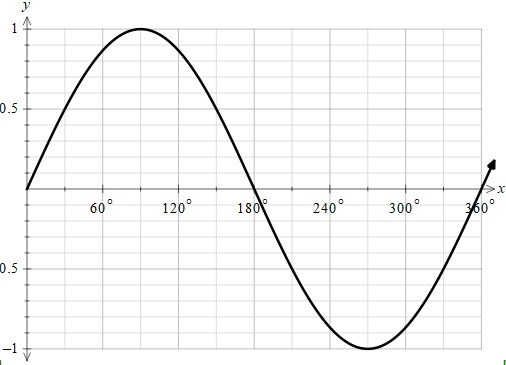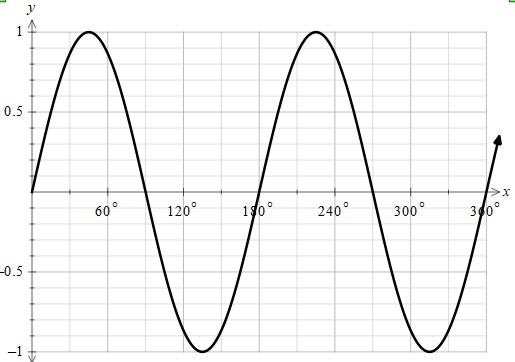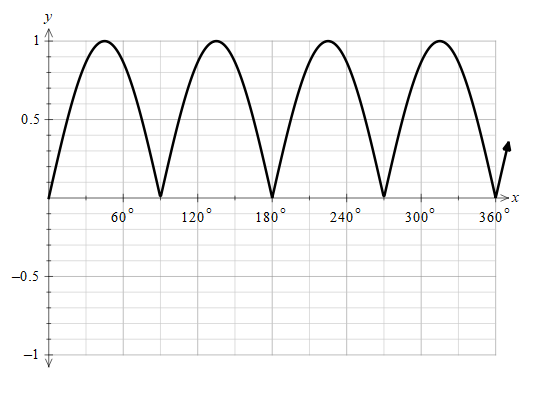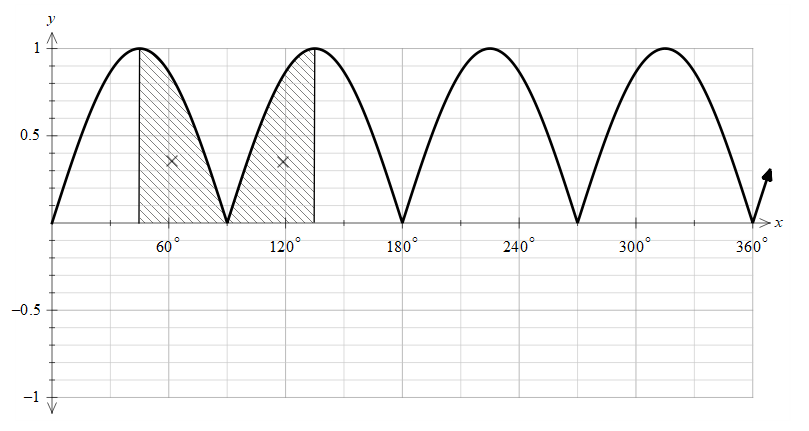Question
Question: As x increases from \(\dfrac{\pi }{4}\) to \(\dfrac{3\pi }{4}\) , \(\left| \sin \left( 2x \right) \r...
As x increases from 4π to 43π , ∣sin(2x)∣
(a) Always increases
(b) Always decreases
(c) Increases then decreases
(d) Decreases then increases
(e) Stay constant$$$$
Solution
In order to solve this problem, we need to find a way to plot the function. The modulus of the function makes all the negative terms positive. Also, we can either draw the function in radians scale or convert the required range in degrees we can change by multiplying by the factor of π180.
Complete step by step answer:
Let’s first understand the question.
We are given to find the behaviour of the function in a certain domain.
It would be easy if we plot the function.
We have asked to plot the function of ∣sin(2x)∣ ,
Let’s start with plotting the function of sinx .

As we can see that the maximum value of the graph is between +1 and -1.
Now, let's draw the graph of sin2x .

As we can see, that by comparing with the sinx graph looks shrunk. This is because of factor 2. Whenever any constant multiplies with the variable directly it either stretches or expands depending on the constant.
Let's draw the function of ∣sin2x∣ .
The main function of the modulus is to make all the negative terms positive.
Hence, the graph looks like as below,

All the portion from the negative half cycle is converted into positive.
Now, we need to find the behaviour of the graph in the range 4π to 43π .
The range we have given is in radians and we have the graphs in degrees. So, now we have to convert the radians into degrees.
For converting radians to degrees, we have to multiply by the factor of π180 .
Therefore, converting 4π into degrees we get,
4π×π180=45∘ .
Now, converting 43π into degrees we get,
43π×π180=135∘ .
So, now we have to find the behaviour of the function from the range 45∘ to 135∘ .

The shaded region is the range from 45∘ to 135∘ .
As we can see that the function first decreases and then increases.
So, the correct answer is “Option d”.
Note: In this problem, we must understand how to plot the graph. Whenever any constant multiplies with the variable directly in sine or cosine function it either stretches or expands depending on the constant. Also, the sin is an oscillating function and this function will never be a constant. So, option (e) is eliminated.
